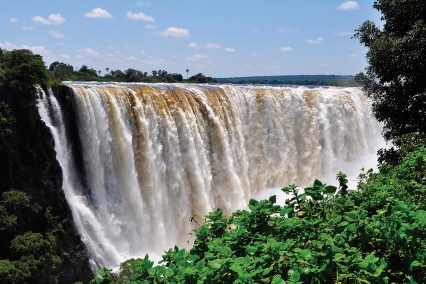
The Southern African nation is heavily reliant on copper exports to fuel its economy, with the metal making up almost US$10bn of its US$29.2bn GDP in 2022
ANALYSIS | ISAAC HANSON | Zambia’s government is taking a more strategic approach to its involvement in the copper market with the launch of a metals trading company in partnership with commodity trader Mercuria. An analyst describes the move as a “level-headed and intentional approach” compared to previous government interventions in the sector.
The partnership, agreed last month, is between Mercuria and Industrial Resources Limited, a wholly owned subsidiary of the Industrial Development Corporation (IDC), Zambia’s government investment vehicle, and comes as the country seeks to boost copper production to 3 million tonnes a year.
In a release, Mercuria describes the collaboration as a “bold step in Zambia’s resource governance strategy”. Its primary objectives include developing independent institutional marketing and trading capacity for the country’s copper resources, building a local pipeline of metals trading and human capital development via knowledge and skills transfer from Mercuria to the local population, enhancing transparency and efficiency in mineral trading, and expanding Zambia’s participation in global commodity markets.
While specific details on timelines, financing and expected revenues have not yet been disclosed, IDC chief executive Cornwell Muleya says that the initiative will “position Zambia as a key player in international markets”.
Zambia was the world’s ninth-largest producer of copper in 2022, according to Natural Resources Canada.
The Southern African nation is heavily reliant on copper exports to fuel its economy, with the metal making up almost US$10bn of its US$29.2bn GDP in 2022. Currently, almost half of these exports go to Switzerland, home to many commodities traders that purchase the metal for re-export to other markets. Through the new joint venture, the Zambian government will directly procure and market a portion of the country’s copper production.
The government has been working to establish a state-owned trading department since at least February last year, according to Bloomberg. It has set an ambitious target to triple copper production to 3 million tonnes annually by 2031. Although output remains stagnant at around 800,000 tonnes, officials anticipate a sharp increase in the coming years due to the government’s improved relations with mining companies present in the country.
In 2023, Indian mining company Vedanta agreed to pay nearly US$250mn to creditors, settling a dispute that had halted production at its copper mines in Zambia, and pledged a further US$1bn investment into its operations. The same year, mining company Barrick Gold announced a US$2bn expansion of Lumwana copper mine, which it began to implement in October 2024.
The timing of the partnership with Mercuria is no coincidence, Pangea-Risk Africa analyst Zaynab Hoosen tells Global Trade Review.
“Zambia’s government has decided to [establish the joint venture] now before the boom that is expected to occur over the next couple of years,” Hoosen says. “By then, the company will already be set up and in a good position, having gained some experience from Mercuria over these years.”
The 2016-2021 social democratic Patriotic Front-led government pushed for nationalisation of the country’s mining sector. This included the acquisition of mining company Mopani Copper Mines towards the end of President Edgar Lungu’s term – a move that added US$1.5bn to Zambia’s sovereign debt and failed to deliver the intended benefits, Hoosen says.
In response, the current administration took steps to reverse this approach by selling a controlling 51% stake in Mopani to Abu Dhabi’s International Holding Company in 2024. The sale aimed to boost production, which fell between 2021 and 2023, according to Mopani’s 2023 annual report.
Resource nationalism
The desire for countries to control their own resources is nothing new – and can be a positive tool for economic development if managed effectively.
Resource nationalisation – particularly in the oil and mining sectors – is gaining renewed popularity across the African continent. In 2024, both Burkina Faso and Mali nationalised foreign-owned gold mines, while in South Africa, former President Jacob Zuma’s MK Party adopted a pro-nationalisation stance in the run-up to the 2024 general election, advocating for increased state-ownership of key mining assets.
In Niger, a dispute is ongoing after the military junta unilaterally took control of French nuclear firm Orano’s uranium mines in December.
“Zambia has chosen to take the approach of partnering up with a company that has the expertise to try and maximise national benefit, because there is a sense among African populations that the Africans themselves do not benefit enough from minerals extraction and oil extraction,” says Hoosen.
“I believe that this is a more business-friendly way to co-operate with companies and facilitate local capacity building and skills transfer, while also not contributing to any hostile relations with private entities.”
****
Source: Global Trade Review
 The Independent Uganda: You get the Truth we Pay the Price
The Independent Uganda: You get the Truth we Pay the Price


